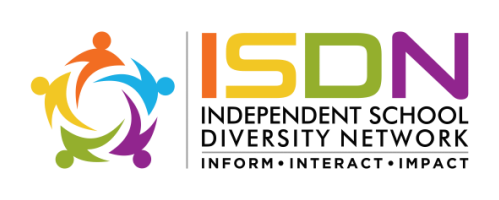OUR STORY
Independent School Diversity Network began as a way to provide networking opportunities for families and educators. Both Esther and Wendy acknowledged the need for both groups to have a way to meet one another from different schools, share parenting secrets, and improve their schools environment by creating more inclusive communities for their children to learn and thrive. We noticed that schools operated in isolation and struggled with similar concerns, but there was no vehicle for the sharing of best practices. In addition, there was a need to create a forum for educators and parents to peacefully co-exist and talk to each other non-confrontationally.
The ISDN co-founders, having experienced multiple school settings themselves, realized the need for the creation of a system whereby like-minded individuals could come together, share a safe space and begin to dialogue with one another without the stigma of school competitiveness and work toward the common goal of creating more inclusive environments so that students may excel.
ISDN became a 501(c)(3) non-profit organization in 2013.
Founded in 2002, the New York City-based Independent School Diversity Network (ISDN) connects schools, parents, and educators and supports them in furthering their community-strengthening initiatives. This nonprofit organization – focused on equity and inclusion – facilitates parent and educator dialogues as well as multi-school partnerships. ISDN creates opportunities for collaboration among groups thus promoting the sharing of best practices and community wellness. In addition, ISDN organizes programs and events that expand students’ academic and social horizons.
ISDN creates open, free, inclusive opportunities for everyone to participate, as well as creating safe spaces for all to learn from each other. The number of events ISDN sponsors has grown from one annual event in 2002 to forty five events in 2014-2015. ISDN became incorporated in February 2011 and received Federal 501c3 non-profit status in 2013. ISDN is supported by institutional memberships and donations from the community.
If continued growth in cultural competencies, anti-bias curriculums and equitable learning environments is desired in our schools, the creation of a broader collaborative community where models of success can be shared and interschool partnerships can be formed is essential. These partnerships will enhance the educational, social and emotional well-being of all participants.
The ISDN co-founders, having experienced multiple school settings themselves, realized the need for the creation of a system whereby like-minded individuals could come together, share a safe space and begin to dialogue with one another without the stigma of school competitiveness and work toward the common goal of creating more inclusive environments so that students may excel.
ISDN became a 501(c)(3) non-profit organization in 2013.
Founded in 2002, the New York City-based Independent School Diversity Network (ISDN) connects schools, parents, and educators and supports them in furthering their community-strengthening initiatives. This nonprofit organization – focused on equity and inclusion – facilitates parent and educator dialogues as well as multi-school partnerships. ISDN creates opportunities for collaboration among groups thus promoting the sharing of best practices and community wellness. In addition, ISDN organizes programs and events that expand students’ academic and social horizons.
ISDN creates open, free, inclusive opportunities for everyone to participate, as well as creating safe spaces for all to learn from each other. The number of events ISDN sponsors has grown from one annual event in 2002 to forty five events in 2014-2015. ISDN became incorporated in February 2011 and received Federal 501c3 non-profit status in 2013. ISDN is supported by institutional memberships and donations from the community.
If continued growth in cultural competencies, anti-bias curriculums and equitable learning environments is desired in our schools, the creation of a broader collaborative community where models of success can be shared and interschool partnerships can be formed is essential. These partnerships will enhance the educational, social and emotional well-being of all participants.

